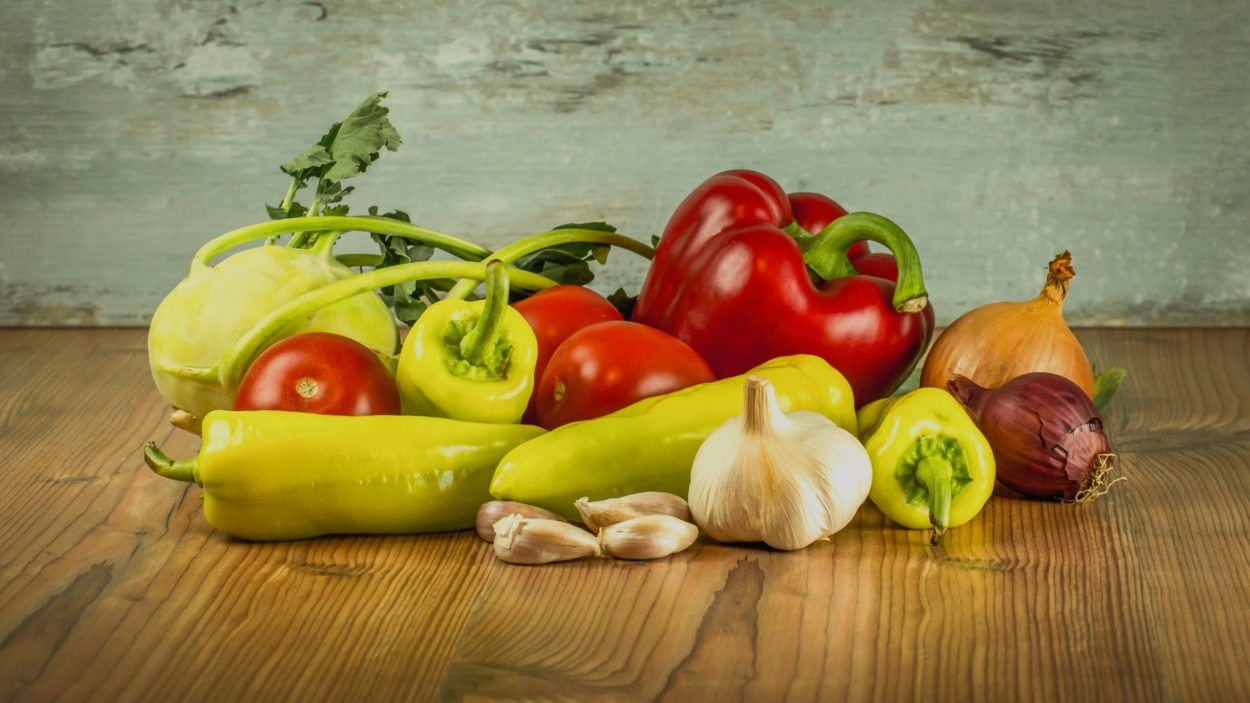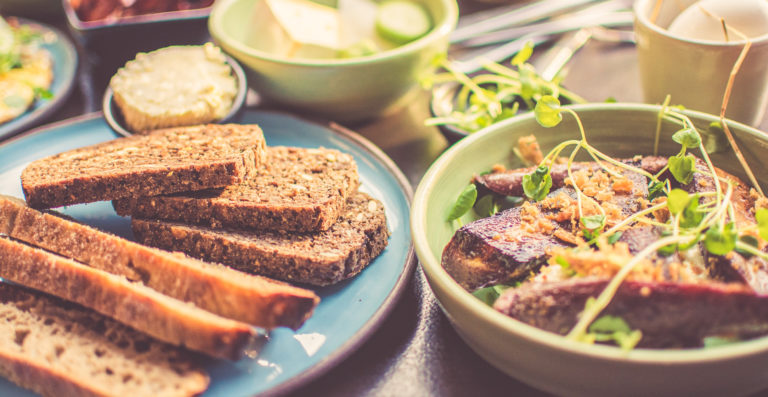
Quick, Easy, Unprocessed Raw Foods = Yum!
Here’s yet another reason why salads are good for you; because unless your salads only contain meat (unlikely); most of what’s in your salad is raw vegetables; and raw, unprocessed veggies are wonderful for your health. I’m not saying your diet should be 100% raw foods; but it should contain a high amount of raw foods like carrots, apples, and seeds for optimal nutrition.
WHY RAW FOODS ARE AWESOME
![]() Since they are entirely unprocessed, raw foods do not contain any unhealthy additives, and processed sugar won’t be a worry. Basically, if you’re eating raw fruits or veggies you know you’re eating something healthy. While raw foods that are organic are ideal, even a non-organic apple is going to be more nutrient-rich than a cookie (sorry).
Since they are entirely unprocessed, raw foods do not contain any unhealthy additives, and processed sugar won’t be a worry. Basically, if you’re eating raw fruits or veggies you know you’re eating something healthy. While raw foods that are organic are ideal, even a non-organic apple is going to be more nutrient-rich than a cookie (sorry).
![]() A diet high in raw foods can do wonders for the prevention or ease chronic conditions. When your body has the nutrients it needs it can do wonders to reduce the effects of all sorts of ailments, and it will be better equipped to take on anything that can harm your body.
A diet high in raw foods can do wonders for the prevention or ease chronic conditions. When your body has the nutrients it needs it can do wonders to reduce the effects of all sorts of ailments, and it will be better equipped to take on anything that can harm your body.
![]() Raw food is very eco-friendly as there is usually far less packaging involved. This hold true for most produce, unless you buy pre-sliced fruits and veggies. In addition, to avoid plastic bags to hold your produce at the store, you can use reusable mesh bags like these ones, or these ultra fancy organic ones.
Raw food is very eco-friendly as there is usually far less packaging involved. This hold true for most produce, unless you buy pre-sliced fruits and veggies. In addition, to avoid plastic bags to hold your produce at the store, you can use reusable mesh bags like these ones, or these ultra fancy organic ones.
![]() Raw foods contain live enzymes which will allow your body to properly digest food by breaking down nutrients into their tiniest particles, then absorbing them. This is essential for optimal health. Raw foods also contain nutrients, proteins, and substances that speed the body’s healing process.
Raw foods contain live enzymes which will allow your body to properly digest food by breaking down nutrients into their tiniest particles, then absorbing them. This is essential for optimal health. Raw foods also contain nutrients, proteins, and substances that speed the body’s healing process.

COOKED vs RAW
Why are raw foods so great? Because cooked foods can be less than awesome sources of nutrients. Cooking depletes vitamins, can damage fats and proteins, and can create free radicals. Water soluble vitamins like B vitamins and C are the most likely to be lost during cooking since they are especially sensitive to heat. Cooking raw foods above 118°F will also destroy some of its natural enzymes needed for digestion, so if you eat a lot of cooked food supplementing with enzymes may be necessary.
This doesn’t meat you shouldn’t cook anything, but it is a strong argument for eating a high amount of foods that do not need cooking along with your meal; like having cooked quinoa and cooked broccoli with raw cherry tomatoes and raw peppers.
Cooking will also soften the cellulose and fiber in starches like potatoes and rice, making their nutrients easier to digest; and in the case of animal meats, heat helps inactivate bacteria and microorganisms that could cause disease.
Raw foods aren’t perfect though; vitamins can be lost from raw foods as well. Raw foods can be sensitive to air, light, and time, which makes it important to eat foods as fresh as possible, and as locally produced as possible.
Unfortunately, not everyone’s bodies allow them to eat a high amount of raw foods. Even with the depletion of some nutrients, cooking food may be more beneficial for people who have digestive problems as cooked foods are easier to digest. People with digestive troubles may have difficulties assimilating the nutrients in raw foods, which makes the high nutrient content in raw foods negligible if those nutrients are not being absorbed properly anyway. So if you do have digestive problems, avoiding raw foods may actually help you in some cases.
TO CONCLUDE
Aim to have a significant portion of your diet be raw foods. They will give your body the high quality nutrients it needs to function optimally. Aim for raw fruit before breakfast; like a banana, apple, or cantaloupe; a salad with lunch, some raw nuts and seeds for snacks, and some raw veggies with dinner. Enjoy!





Leave a Comment